Meta is one of the most competitive tech companies. This is where engineers push the boundaries of technology and impact billions of users worldwide. The company values structured thinking, technical proficiency, and the ability to contribute meaningfully to large-scale systems.
Your Path to Landing a Role at Meta
As a candidate, you’ll need to demonstrate your coding expertise, product sense, and adaptability while proving you can work effectively in a team that spans multiple disciplines.
What should you expect during Meta’s interview process?
Meta’s interview process is designed to assess both your technical expertise and your ability to think critically in real-world scenarios. While the company values strong coding skills, it emphasizes problem-solving approaches, teamwork, and product impact.
Don’t just prepare; master the interview process!
1. Initial screening
The process starts with an introductory conversation with a recruiter. This is your opportunity to discuss your background, motivations, and how your skills align with the role. Be prepared to answer questions about:
- Your experience working on large-scale projects
- Your approach to handling ambiguity in product development
- How to collaborate with cross-functional teams, including designers and product managers
Meta values structured thinking and clear communication, so be concise and articulate in your responses.
2. Online coding challenge
Next, you may receive a coding assessment. This challenge typically consists of:
- Algorithmic problems: You’ll solve problems focusing on data structures, algorithms, and optimization.
- Systems thinking: Some problems may require thinking beyond code, considering scalability and performance.
Expect time constraints, so practice balancing efficiency and accuracy.
3. Technical interviews
If you pass the initial screening, you’ll enter a series of technical interviews, usually via video calls. These will assess:
- Coding proficiency: Solve problems in your preferred programming language while explaining your thought process.
- System Design: For experienced candidates, system design discussions will test your ability to architect scalable and efficient solutions.
- Debugging and optimization: Expect real-world scenarios where you analyze and improve existing code.
You’ll be expected to think aloud, justify your decisions, and iterate based on feedback.
4. On-site (or virtual) interviews
Meta’s onsite stage consists of multiple rounds:
- Pair programming: Collaborate with an engineer to solve a problem in a shared coding environment. Show how you write, refactor, and test your code while incorporating feedback.
- Behavioral interview: Discuss past projects, challenges you’ve faced, and how you’ve contributed to team success.
- System Design interview: If applicable, this round assesses how you design high-scale applications, considering trade-offs in architecture, performance, and maintainability.
5. Final interviews and culture fit
The final stage ensures that you align with Meta’s core values. Topics covered may include:
- Product thinking: How do you approach building features that enhance user experience?
- Collaboration and leadership: Have you led initiatives or mentored peers?
- Diversity, equity, and inclusion: Meta values diverse perspectives, so expect to discuss how you foster inclusive environments.
Pros and Cons of Meta’s Interview Process
Pros
- Structured process: Each stage is clearly defined, so you know what to expect.
- Transparent expectations: Meta provides candidates with preparation materials.
- Real-world focus: System design and behavioral interviews assess skills beyond coding puzzles.
- Fair and inclusive: Interviews emphasize collaboration and diversity.
Cons
- Time-intensive: The process takes several weeks, requiring multiple rounds.
- Algorithm-heavy: Early technical rounds focus on LeetCode-style problems rather than development skills.
High bar for entry: Meta’s expectations are high, making it difficult for even strong candidates to pass.
Meta’s Coding Interview Questions
As your date for the Meta interview approaches, focus on the following key areas:
- Data structures and algorithms: Strengthen your grasp of trees, graphs, dynamic programming, and system optimization techniques.
- Code efficiency: Meta values clean, maintainable, and scalable code—focus on writing solutions that balance readability and performance.
- System design principles: Understand concepts like load balancing, caching, and database scaling if applying for senior positions.
- Collaboration and adaptability: Be ready to showcase how you work with teams, embrace feedback, and iterate on solutions.
Tips for Success:
- Practice coding challenges daily (especially medium/hard LeetCode problems).
- Brush up on system design concepts and distributed systems architecture.
- Work on clear, structured communication during interviews.
- Think about impact and collaboration when answering behavioral questions.
Company Guides

